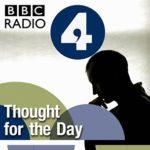
Yesterday’s service at the Cenotaph was a touching reminder of the tragic loss of millions of young lives in the first and second world wars and in numerous subsequent conflicts. Today we are all too aware that lasting peace, based on universal respect for human rights, still remains a distant and elusive goal.
Guru Nanak whose birth anniversary Sikhs celebrate today, was himself a witness to the savagery of conflict, with forced conversions and atrocities. He was a man far ahead of his time. Instead of restricting himself to praying to God for peace, he also attacked the underlying causes of conflict, including supposed religious superiority and exclusive relationships with God; then used, and still used today to justify cruel and intolerant behaviour. The Guru in his very first sermon taught that the one God of us all was not in the least bit impressed by our different religious labels, but by what we do to ensure peace and social justice for our fellow human beings.
The Guru also criticised the belief that any one nation or group of people were inherently superior to those around them. He taught a belief in the equality and interdependence of all members of our one human family. Following the huge loss of life in the second world war, similar thoughts led to the creation of the United Nations and the Universal Declaration of Human Rights.
The reality of the world today is that while instant communications and interdependence in trade and commerce, push us to the realisation of a shared and common destiny, long engrained attitudes and prejudices, make it difficult for many to accept the new reality. We cannot have it both ways. We cannot be true to those, who, in the words of the Kohima Epitaph, ‘gave their today for our tomorrow’ unless we look towards a world that recognises an equal respect for all. It’s not easy to change deep rooted attitudes, but as Guru Nanak reminds us, it’s the only way to true and lasting peace.

